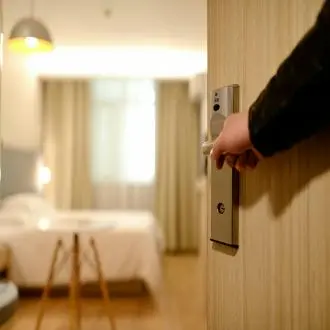Transcription preventionandcontroltoavoiddefectiveresults
Quality is not only achieved by correcting errors, but above all, by preventing them.
A proactive approach to prevention and process control is essential to avoid defective results that can affect customer satisfaction and the hotel's reputation.
Staff training is the cornerstone of this preventive strategy.
The Worker's Role in Detection and Prevention
Every hotel worker must know how to check the products and tools they need to carry out their daily work.
Likewise, they have the responsibility to report any anomaly they detect, such as a torn towel, to their superior so that it can be removed immediately.
Preventive activities are a fundamental and intrinsic part of their daily tasks.
Training as a Key Preventive Tool
Good training is essential for the evolution of the hotel business, as it motivates workers, increases their productivity and improves the safety and quality of the services offered.
The lack of ongoing training is a common shortcoming in the sector, which often leads to poor handling of complaints and setbacks, directly affecting customer dissatisfaction.
This lack of specific training also leads to a greater risk of workplace accidents.
Therefore, every company must actively promote training, either through its own programs or by using external centers.
Types of Training and Record Control
In relation to quality, two types of training are distinguished: initial training, which aims to provide the necessary skills for the qualified performance of a profession, and ongoing training, which seeks to improve the training needs of the worker and is periodically evaluated.
Every training plan must have defined content, both general and specific, and must be reviewed at least every five years to adapt to current regulations.
Record control is equally important: all training activities, as well as their incidents and measures The prevention measures taken must be recorded in documents to avoid defective results in the future.
Occupational Risk Prevention as a Framework
Law 31/1995 on the Prevention of Occupational Risks aims to "promote the safety and health of workers by applying the measures and carrying out the activities necessary for the prevention of risks arising from work."
In hotels, risk control is especially significant, as these could also affect customers.
Accident rates in this sector are usually higher than t
prevention and control to avoid defective results




